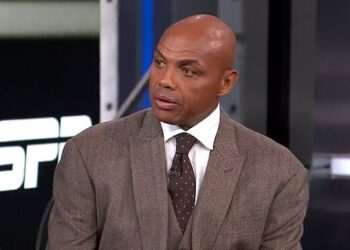
Forever facing questions over its relevance in the modern-day sporting environment, it is a point of uniqueness that the Commonwealth Games is capable of producing septuagenarian champions, proudly providing a playing field where the great, the good and the entirely improbable share a common place.
Indeed, only 48 hours after Lenton had set her record in Birmingham, Scottish compatriot George Miller broke it when he won gold in the lawn bowls mixed pairs B2/B3 at the age of 75.
Miller, who was director for visually impaired bowler Melanie Innes, went into the match knowing whoever triumphed would break new ground, up against fellow 75-year-old Welshman Gordon Llewellyn. Scotland’s victory meant Miller prevailed in the quest for the record.
Lawn bowls’ inclusion in the Commonwealth programme means Lenton, Miller and Llewellyn are far from the only ones representing their country long after qualifying to collect their state pensions. Seven bowlers playing in Birmingham this week were born in the 1940s, with a further 33 born in the 1950s.
While none have broken the record of Canadian shooter Robert Pitcairn, the oldest ever participant, who made his Commonwealth debut in 2018 aged 79, there is no shortage of athletes defying their advancing years in Birmingham.
Outside lawn bowls and para sports, 62-year-old Stephen Reilly, an English-born Fijian table tennis player, is the oldest athlete competing, following in the footsteps of his father Jim, who boxed for Scotland at the 1938 British Empire Games, as the Commonwealth Games was previously known.
“As a kid, one of my big memories was his blazer with the embroidered Empire Games emblem on it,” said Reilly, whose team-mates on Fiji’s men’s team knocked out in the group stage were aged 16 and 17. “It was beautifully stitched – not like a school badge, it had really nice gold stitching.”








